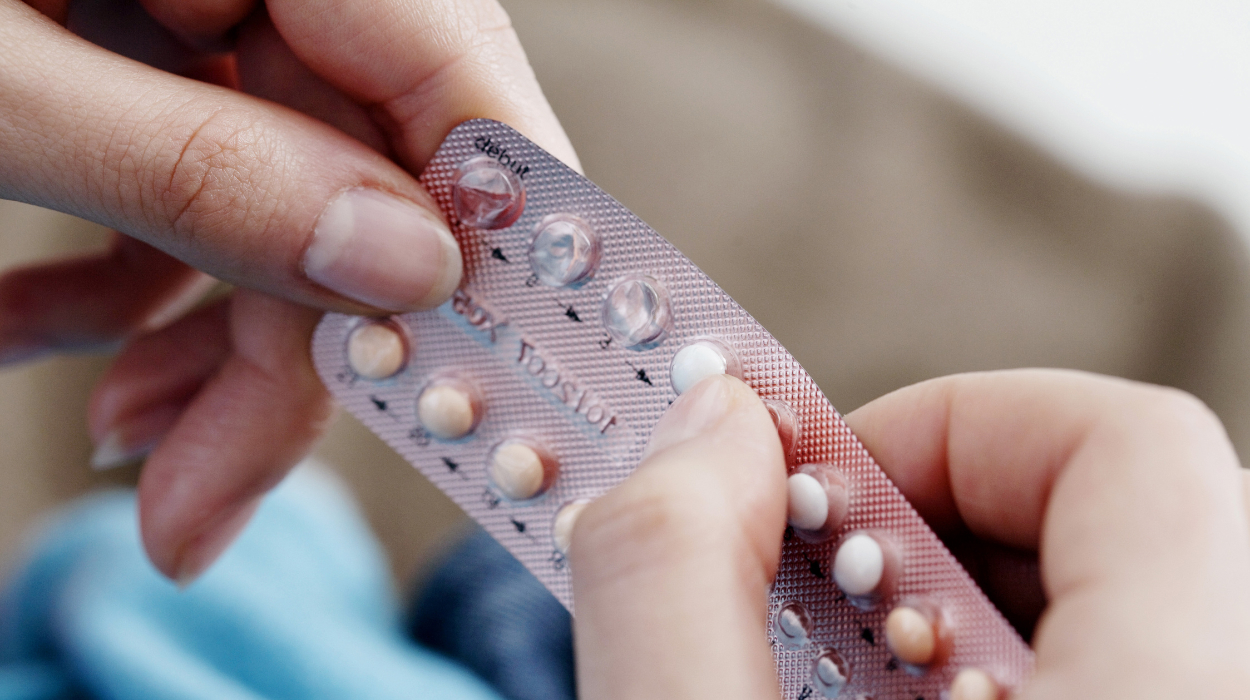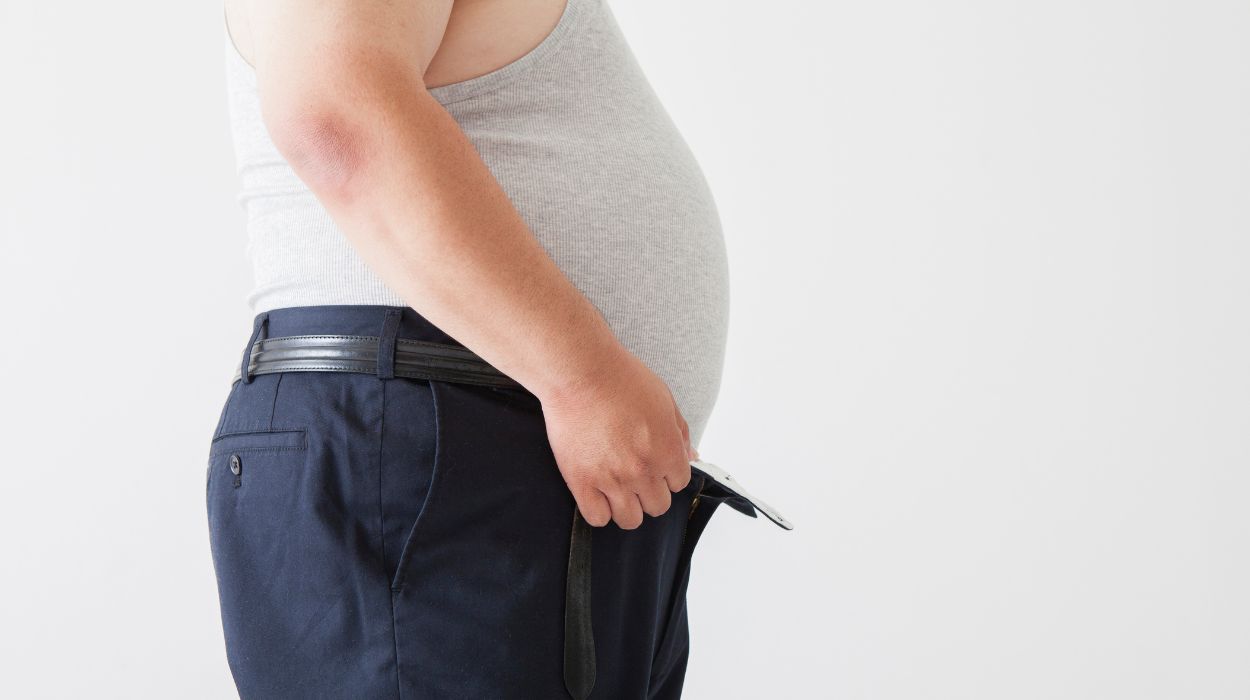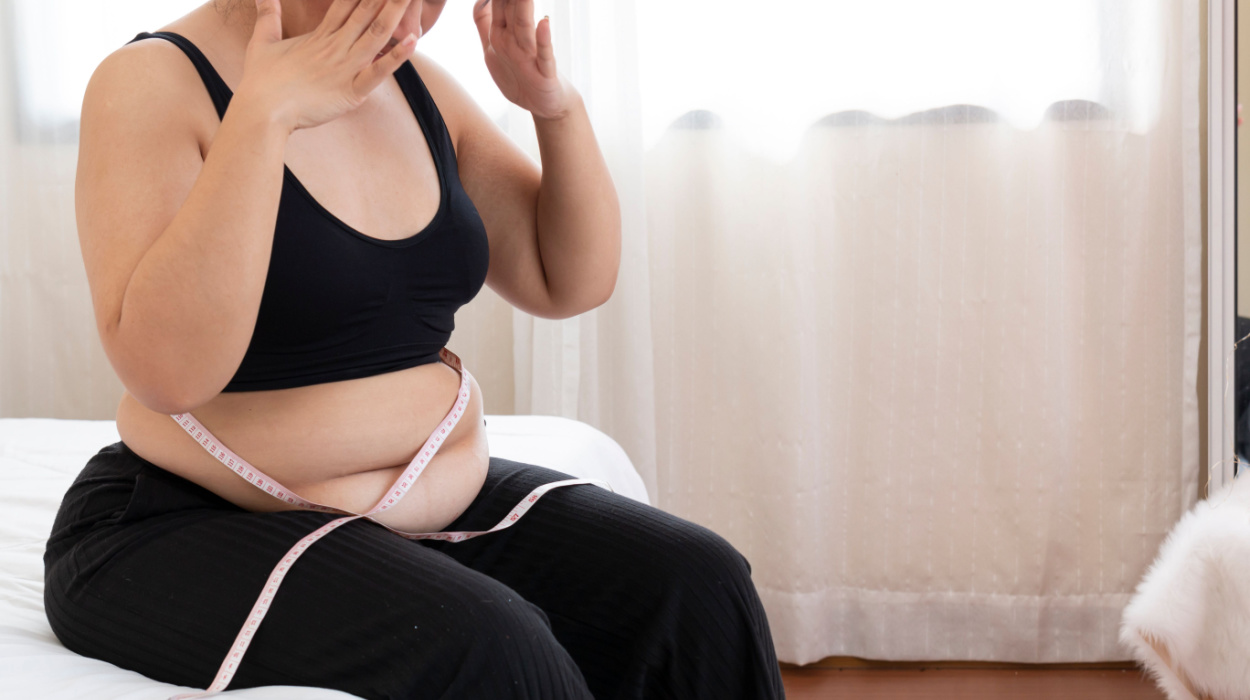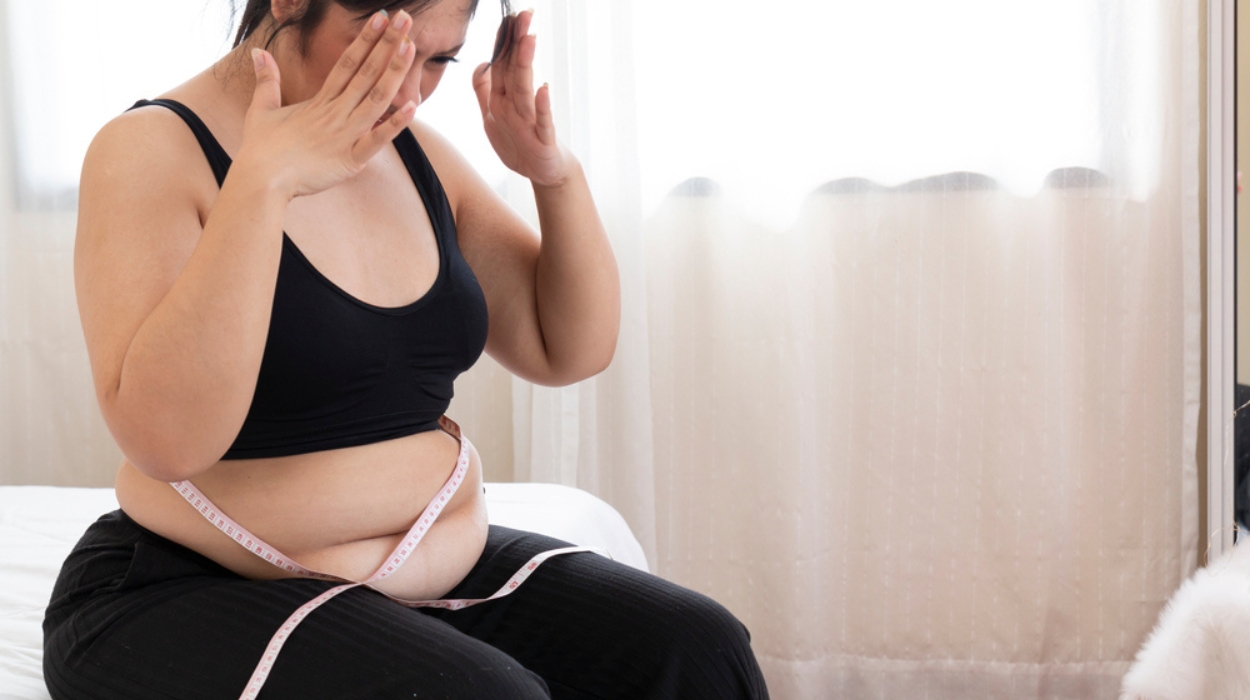How Long Does It Take To Lose Weight After Stopping Birth Control In 2024?
It is a common belief that the oral contraceptive pill can influence your weight. Some people report gaining weight while on hormonal birth control, leading to the question: how long does it take to lose weight after stopping birth control?
The answer is not straightforward, and the topic is under-researched. However, understanding how hormonal birth control affects your body and weight can provide insights into what to expect when you stop using it.
How Long Does It Take To Lose Weight After Stopping Birth Control?
It depends on the individual. There isn’t much scientific evidence to support birth control being a cause of weight gain. So it is impossible to say when you will start losing weight after stopping it.
If you have fluid retention from the pill, that usually resolves itself within a few weeks. However, in order to start losing fat, you need to make lifestyle changes such as increasing physical activity and reducing calorie intake, which can take months to see results.
When Do You Start Losing Weight After Quitting Birth Control?

Little evidence supports birth control being a cause of weight gain, so it is impossible to say if you will lose weight after stopping. Suppose you have fluid retention[1] from the pill, which usually resolves within a few weeks. However, to start losing fat, you need to make lifestyle changes such as increasing physical activity and reducing calorie intake.[2] This can take time to see results.
The precise cause of reported weight gain from certain contraceptives remains unknown. One hypothesis is that elevated estrogen levels could increase water retention. A study on fluid retention found that people taking oral contraceptives had slightly lower levels[3] of certain substances in their blood that help balance bodily fluids. In simple terms, taking oral contraceptives might change some aspects of how the body balances fluids.
Another study looking at hormones and eating habits found that estrogen and progestin — a synthetic form of the hormone progesterone — affect eating habits.[4] Women tend to eat less as estrogen levels rise during certain parts of the menstrual cycle.
On the other hand, progestin is associated with increased eating when it rises — particularly in response to stress or negative emotions.
Combination hormonal birth control pills contain both estrogen and progestin, while others have only progestin. This means that some oral contraceptives could affect body weight.
Featured Partner Offer

PhenQ
- Helps to burn fat
- Crushes food cravings
- Boosts energy and balances mood
- High-quality formula
Money Back Guarantee and Free US Shipping
The Main Types Of Birth Control
There are various types of birth control methods available. Hormonal birth control[5] includes tablets, patches, injections, and vaginal rings. Regular usage is necessary — daily for pills and every few weeks or months for the other methods.
Most hormonal birth control pills are a combination of estrogen and progestin, or progestin only. Progestin-only contraceptives are often chosen by women who cannot or should not take estrogen and include different methods such as injections, intrauterine devices, implants, and pills.
Long-acting reversible contraception encompasses implants and intrauterine devices. A healthcare professional must perform the insertion,[6] and these can be effective for up to ten years in some instances. Some variations are hormonal, while others are hormone-free.
Barrier methods create a physical obstruction to prevent sperm from entering the uterus. However, their effectiveness is lower.[7] Options include external and internal condoms, spermicides, diaphragms, and cervical caps.
Emergency contraceptives should only be used after unprotected sex to avoid pregnancy. The majority are in pill form.
Birth Control And Weight Gain

While many women report weight gain[8] after using the hormonal birth control pill, little evidence supports it as a common side effect.
Studies have been conducted[9] to determine whether combined hormonal birth control pills and weight changes are linked. The results showed that most comparisons didn’t show a significant difference in weight. That isn’t to say that it does not happen; it’s just that more trials are needed to understand this issue thoroughly.
Progestin-only contraceptives, or POCs, have also been studied.[10] Researchers looked at various studies that compared women using POCs to those using other contraceptive methods or no contraception. After analyzing 22 eligible studies involving 11,450 women, they found that, in most cases, there was no significant difference in weight change between the groups. In other words, women using POCs did not generally gain more weight than those using other contraceptives or none at all.
However, a few studies did show some differences. For instance, some studies showed that users of a birth control injection called depot medroxyprogesterone acetate gained more weight[11] than women not using hormonal birth control.
How To Lose Weight After Stopping Birth Control
Losing weight after stopping hormonal birth control follows the same basic principles as losing weight any time, a healthy diet, exercise, and lifestyle modifications. Some helpful tips to keep your weight loss on track are to:
- Consume a balanced, high-fiber diet[12] rich in fruits, vegetables, whole grains, and lean proteins. Cut down on processed foods. Consult a registered dietitian to ensure you’re getting all the necessary nutrients.
- Incorporate regular physical activity into your routine. Aim for at least 30 minutes of moderate-intensity exercise each day.[13] Gradually increase intensity for sustainability.
- Stay hydrated[14] and avoid beverages high in sugar. Opt for water or unsweetened tea instead.
- Practice mindful eating. Pay attention to what, why, and how you eat. Slowly savoring your food can help you feel full faster.[15]
- Be aware of triggers that lead to unnecessary snacking and find ways to limit them.
- Plan meals and stock your kitchen with healthy ingredients. This can prevent impulsive, unhealthy eating.
- Consider supplements or fat burners to expedite the weight loss process.
- Get enough sleep. Being well-rested can help to improve weight loss outcomes.[16]
Other Side Effects Of Stopping Birth Control
When you stop using the birth control pill, you eliminate the external supply of hormones. This alters their concentrations in your body, possibly leading to temporary side effects.
Generally, discontinuing birth control is straightforward. If you’re on the pill, you simply stop taking it, regardless of where you are in the pack. Vaginal ring users can remove it themselves. Your doctor must remove internal devices like a coil or an implant. This procedure is quick and usually painless.
Clinical studies exploring the adverse effects of stopping hormonal birth control are yet to be conducted. The specific effects may depend on the type of birth control and individual-specific factors,[17] such as stress, exercise, and medical conditions. However, some reported symptoms might include:
- Changes in your menstrual cycle.
- Pregnancy.
- Heavier periods.
- Cramping during ovulation.
- Premenstrual syndrome.
- Mood swings.
- Weight fluctuations.
- Acne.
- Unwanted hair growth.
- Headaches.
- Tender breasts.
- Changes in sex drive.
Some women report that removing their hormonal intrauterine device caused a phenomenon called the Mirena crash. A sudden intensification of pre-existing symptoms, such as fatigue, headaches, mood swings, insomnia, and changes in sex drive, characterizes it. There are almost no studies on this phenomenon at the time of writing.
There may be other symptoms that women experience when ceasing hormonal birth control. Some women also report longer-term symptoms, such as the worsening of mental health[18] conditions such as depression. Conversely, other studies have reported no effect on mental health. Overall, it appears more likely that users will experience a positive effect on mental health, though more research is needed to confirm this.
The effects of using or stopping hormonal birth control vary from person to person. Every woman’s experience is unique and should not be dismissed — even without the scientific studies to back them up.
Can Stopping Birth Control Cause Weight Gain?
While some report weight loss, weight gain after stopping birth control has also been reported as a side effect. Again, little to no evidence has properly supported this claim.
What has been studied is women’s fear of taking birth control as they believe it will cause an increase in weight.[19] These negative views come from personal experiences, misconceptions, and lack of knowledge. This can lead to fear, avoidance, or stopping hormonal contraception. Understanding these perceptions can help healthcare professionals educate women about contraceptives, which could improve the use of hormonal contraception.
How To Stop Taking Birth Control Pills Safely?
If you want to stop taking hormonal birth control, this is a personal choice and can be done safely anytime. The main difference lies in being able to predict your next menstrual cycle. Finishing the pack before you stop allows for better prediction. If you’re using the ring or patch, the same rule applies.
Remember that once you stop birth control, there’s no protection against pregnancy. If you wish to avoid pregnancy while having vaginal sex, adopting another contraceptive method is necessary. Switching to a new contraceptive may require overlapping forms[20] or using a backup like a condom for up to a week. It is best to consult a healthcare professional on which overlap methods to use.
Featured Partner Offer

Conclusion
The relationship between hormonal birth control and body weight is complex and poorly understood. Though numerous people report weight gain, scientific research has yet to confirm this or figure out why it happens.
Weight gain is not a universal experience for all women on birth control. If it does occur, it’s challenging to determine whether it’s a direct result of the contraceptive or other factors. Therefore, it cannot be definitively stated that you will lose weight if you stop taking it.
To successfully lose weight after stopping birth control, or any time for that matter, the best methods encompass healthy adjustments to your diet and lifestyle. These adjustments may include eating nutritious meals, exercising regularly, and getting adequate rest.
Frequently Asked Questions
You may lose weight after stopping birth control, but it is not guaranteed. There is no strong evidence that hormonal birth control has a large effect on weight gain or loss.
It is often hard to lose weight, requiring dedication and commitment. There is no strong evidence that ceasing birth control makes it any more difficult.
There is no evidence to suggest that stopping birth control can cause belly fat, though it may be a side effect that some report they experience.
A high-quality multivitamin containing B vitamins, vitamin C, and vitamin E, and a high-quality powdered magnesium can be excellent supplements[21] when on or coming off birth control.
Resources
- Hahn, R.G. (1989). Compliance considerations with estrogen replacement: Withdrawal bleeding and other factors. American Journal of Obstetrics and Gynecology, [online] 161(6), pp.1854–1858. doi:https://doi.org/10.1016/s0002-9378(89)80006-7.
- Chrysi Koliaki, Spinos, T., Μarianna Spinou, Μaria-Eugenia Brinia, Dimitra Mitsopoulou and Katsilambros, N. (2018). Defining the Optimal Dietary Approach for Safe, Effective and Sustainable Weight Loss in Overweight and Obese Adults. Healthcare, [online] 6(3), pp.73–73. doi:https://doi.org/10.3390/healthcare6030073.
- Graugaard-Jensen, C., Hvistendahl, G.M., Jørgen Frøkiær, Bie, P. and Jens Christian Djurhuus (2017). Oral Contraceptives and Renal Water Handling. Physiological Reports, [online] 5(23). doi:https://doi.org/10.14814/phy2.13547.
- Leeners, B., Geary, N., Tobler, P.N. and Asarian, L. (2017). Ovarian hormones and obesity. Human Reproduction Update, [online] 23(3), pp.300–321. doi:https://doi.org/10.1093/humupd/dmw045.
- NHS Choices (2023). Your contraception guide. [online] Available at: https://www.nhs.uk/conditions/contraception/
- NHS Choices (2023). Intrauterine device (IUD) – Your contraception guide. [online] Available at: https://www.nhs.uk/conditions/contraception/iud-coil/
- Britton, L.E., Alspaugh, A., Greene, M.Z. and McLemore, M.R. (2020). CE: An Evidence-Based Update on Contraception. American Journal of Nursing, [online] 120(2), pp.22–33. doi:https://doi.org/10.1097/01.naj.0000654304.29632.a7.
- Elizabeth Rose Mayeda, Torgal, A.H. and Westhoff, C. (2014). Weight and Body Composition Changes During Oral Contraceptive Use in Obese and Normal Weight Women. Journal of Womens Health, [online] 23(1), pp.38–43. doi:https://doi.org/10.1089/jwh.2012.4241.
- Gallo, M.F., Lopez, L.M., Grimes, D.A., Carayon, F., Schulz, K.F. and Helmerhorst, F.M. (2014). Combination contraceptives: effects on weight. The Cochrane library. [online] doi:https://doi.org/10.1002/14651858.cd003987.pub5.
- Lopez, L.M., Ramesh, S., Chen, M., Edelman, A., Otterness, C., Trussell, J. and Helmerhorst, F.M. (2016). Progestin-only contraceptives: effects on weight. The Cochrane library, [online] 2016(8). doi:https://doi.org/10.1002/14651858.cd008815.pub4.
- Sims, J., Lutz, E.A., Wallace, K., Wondwosen Kassahun‐Yimer, Chiamaka Ngwudike and Shwayder, J.M. (2020). Depo-medroxyprogesterone acetate, weight gain and amenorrhea among obese adolescent and adult women. The European Journal of Contraception & Reproductive Health Care, [online] 25(1), pp.54–59. doi:https://doi.org/10.1080/13625187.2019.1709963.
- Kelly, R., Calhoun, J., Hanus, A., Payne-Foster, P., Stout, R. and Sherman, B. (2023). Increased dietary fiber is associated with weight loss among Full Plate Living program participants. Frontiers in Nutrition, [online] 10. doi:https://doi.org/10.3389/fnut.2023.1110748.
- Yun Jun Yang (2019). An Overview of Current Physical Activity Recommendations in Primary Care. Korean Journal of Family Medicine, [online] 40(3), pp.135–142. doi:https://doi.org/10.4082/kjfm.19.0038.
- Thornton, S.N. (2016). Increased Hydration Can Be Associated with Weight Loss. Frontiers in Nutrition, [online] 3. doi:https://doi.org/10.3389/fnut.2016.00018.
- Hawton, K., Ferriday, D., Rogers, P.J., Toner, P., Brooks, J., Holly, J.M.P., Kalina Biernacka, Shield, J.P.H. and Hinton, E.C. (2018). Slow Down: Behavioural and Physiological Effects of Reducing Eating Rate. Nutrients, [online] 11(1), pp.50–50. doi:https://doi.org/10.3390/nu11010050.
- Evangelia Papatriantafyllou, Dimitris Efthymiou, Evangelos Zoumbaneas, Codruța Alina Popescu and Εmilia Vassilopoulou (2022). Sleep Deprivation: Effects on Weight Loss and Weight Loss Maintenance. Nutrients, [online] 14(8), pp.1549–1549. doi:https://doi.org/10.3390/nu14081549.
- NHS Choices (2023). When will my periods come back after I stop taking the pill? – Your contraception guide. [online] Available at: https://www.nhs.uk/conditions/contraception/when-periods-after-stopping-pill/
- Motter, E. (2019). THE EFFECTS OF ORAL CONTRACEPTIVES ON MOOD AND AFFECT: A META-ANALYSIS. [online] Available at: https://digitalcommons.humboldt.edu/cgi/viewcontent.cgi?article=1356&context=etd.
- Mcgill.ca. (2023). View of The Effect of Perceived Weight Gain on Hormonal Contraception Choice for Women: A Review | McGill Journal of Medicine. [online] Available at: https://mjm.mcgill.ca/article/view/886/790
- Frohwirth, L., Blades, N., Moore, A.M. and Wurtz, H. (2016). The Complexity of Multiple Contraceptive Method Use and the Anxiety That Informs It: Implications for Theory and Practice. Archives of Sexual Behavior, [online] 45(8), pp.2123–2135. doi:https://doi.org/10.1007/s10508-016-0706-6.
- Palmery M;Saraceno A;Vaiarelli A;Carlomagno G (2013). Oral contraceptives and changes in nutritional requirements. European review for medical and pharmacological sciences, [online] 17(13). Available at: https://pubmed.ncbi.nlm.nih.gov/23852908/
More from Weight Management
-

How To Drink Apple Cider Vinegar For Weight Loss In 1 Week In 2024
January 10, 2024
Taking apple cider vinegar has become a sensation for its supposed health benefits, despite its sour taste. Apple cider vinegar may…Read more -

How To Lose Belly Fat After 50: Here’s 10 Tips For People Over 50 To Try In 2024
December 27, 2023
Losing weight over 50 can feel challenging, especially in stubborn areas like the abdomen. As we age, hormonal changes, slower metabolism,…Read more -

How To Lose Weight With Hypothyroidism – 10 Ways You Should Try In 2024
December 22, 2023
Hypothyroidism[1] is a condition that occurs when a person has low levels of thyroid hormone, and it most often develops when…Read more -

Hypnosis For Weight Loss: Unlocking Your Mind’s Potential For Success 2024
December 20, 2023
You’ve heard about various methods and tools to achieve weight loss and you might have looked into how to get ozempic.…Read more


